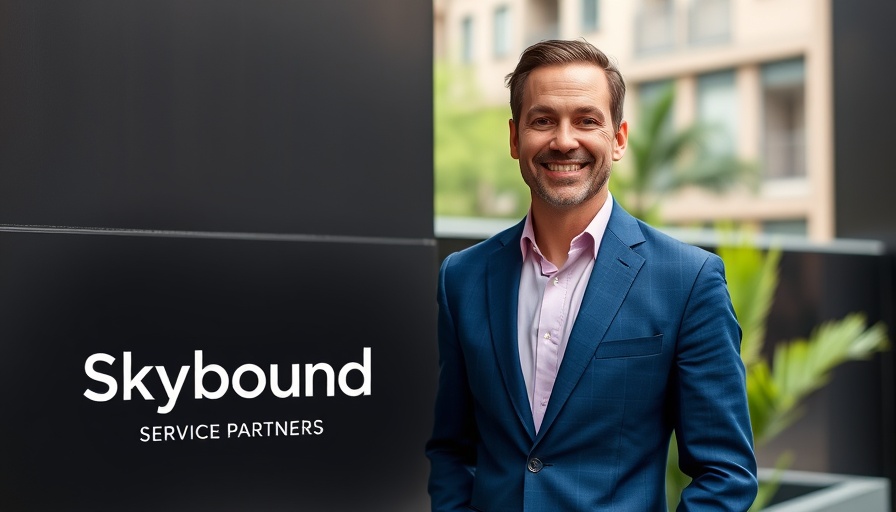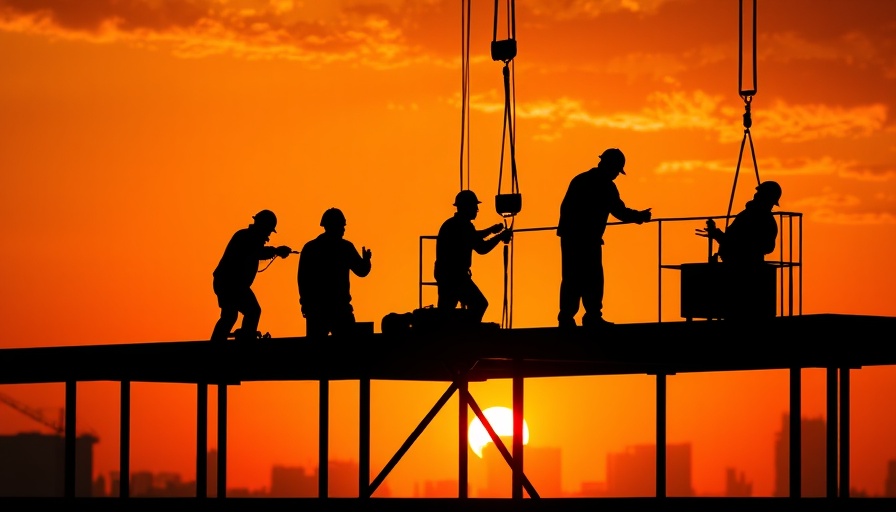
Introducing a New Leadership Era at Skybound Service Partners
Skybound Service Partners marks a significant turning point with the announcement of David Pietropaolo as its new CEO. His leadership promises to enhance operational efficiency and advance the company’s commitment to sustainability in the construction sector.
Vision for the Future: Sustainable Practices and Innovation
With a background in sustainable architecture and innovative solutions, Pietropaolo’s appointment signals a renewed focus on integrating eco-friendly practices within Skybound’s operational framework. This change is critical for businesses looking to enhance their environmental responsibility while maintaining competitive edges. Pietropaolo emphasizes that the future of construction aligns with community values, echoing the sentiments of cost-conscious business leaders and property developers alike.
Building Stakeholder Relationships: A Key to Success
Pietropaolo's previous tenure at market-leading companies highlights his ability to nurture relationships with stakeholders, ensuring successful project execution and community engagement. As businesses increasingly seek collaboration and transparency from their partners, Skybound’s new direction aligns well with these market expectations.
Market Adaptations: Addressing Industry Challenges
The construction industry is pedaling swiftly toward innovative technologies and project management practices, and under Pietropaolo's leadership, Skybound is likely to capitalize on these trends. New technologies are reshaping how projects are designed and executed, blending efficiency with sustainability. Dysregulation in the construction sector poses challenges; however, embracing advanced construction techniques can create new avenues for growth.
Strengthening Community Ties: A Sustainable Vision
In an economy shift towards health-conscious and socially responsible practices, Pietropaolo’s leadership could well resonate with growing community needs. Businesses today are not just evaluated on profit margins but how they contribute to their environments. Skybound Service Partners aims to bridge this gap by focusing on sustainable construction that benefits both clients and the communities they operate within.
Why This Matters to Your Business
This leadership transition is an excellent opportunity for business owners, property developers, and facility managers to reassess their partnerships with service providers and consider how sustainability in construction can serve as a competitive advantage. Evaluating supplier sustainability can lead to better project outcomes and increased customer trust.
Overall, David Pietropaolo’s appointment heralds a new chapter for Skybound, one that emphasizes innovation and commitment to sustainable practices. Businesses looking to adapt in this evolving market should consider the implications of such leadership changes.
 Add Row
Add Row  Add
Add 




Write A Comment